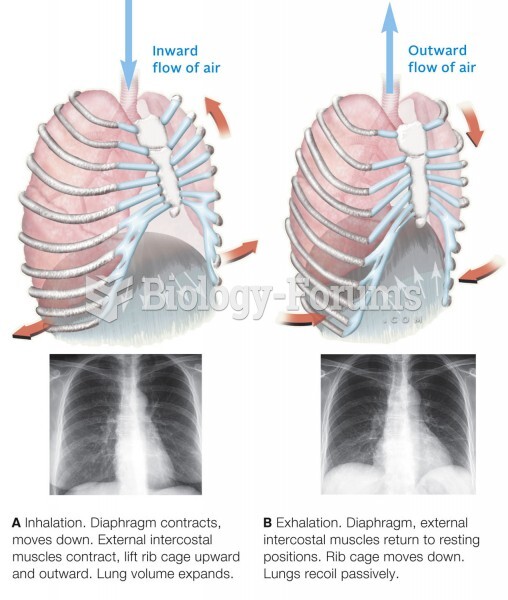|
|
|
All patients with hyperparathyroidism will develop osteoporosis. The parathyroid glands maintain blood calcium within the normal range. All patients with this disease will continue to lose calcium from their bones every day, and there is no way to prevent the development of osteoporosis as a result.
The FDA recognizes 118 routes of administration.
Asthma is the most common chronic childhood disease in the world. Most children who develop asthma have symptoms before they are 5 years old.
During the twentieth century, a variant of the metric system was used in Russia and France in which the base unit of mass was the tonne. Instead of kilograms, this system used millitonnes (mt).
Increased intake of vitamin D has been shown to reduce fractures up to 25% in older people.
 Use of fluorescent molecules by Lowenstein and colleagues to determine the size of gap-junction chan
Use of fluorescent molecules by Lowenstein and colleagues to determine the size of gap-junction chan
 Nephroblastoma. A sectioned kidney reveals the presence of a very large tumor, which arose from feta
Nephroblastoma. A sectioned kidney reveals the presence of a very large tumor, which arose from feta





